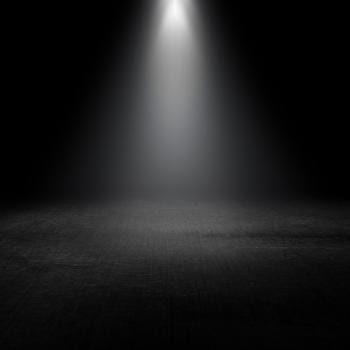Yes, that’s a Christmas tree. And yes, this is a post about Passover.
I’ve heard it said that every moment is holy and that every minute is precious. And I totally agree.
Yet we humans require setting aside certain days and moments in order to fully appreciate their sacredness. Holy days are days assigned to commemorate special events and special meanings. We celebrate because its fun and enjoyable to do so, but also because we understand that doing so reaffirms our identity and allows an opportunity to pause and reflect on our own lives.
Jews have many holy day opportunities – our calendar is full of celebrations and sacred moments. Shabbat reminds of us the sacred underlying the seemingly mundane. But there is also a Jewish Wheel of the Year – a cycle of holidays that coincide with the seasons, nature’s cycles, and the narratives of Torah.
My prayer and hope is that all Jews take advantage of reflecting and engaging the meaning of these rich holy days. And as a convert to Judaism, I’d like to use my experiences with Christmas to help other Jews make the most of these sacred moments.
As a convert to Judaism, I celebrated Christmas for most of my life. I’d say for most Americans, the holiday is the holiday – the biggest event of the year. Even non-Christians (even Jews) get caught up in the festivity of the season.
Yet I’ve observed so many Christmases where people spent hours and hours shopping, preparing, decorating, and waiting in anticipation – only to have the actual experience of the two or so days be something of a let down. I’ve watched too many sad, worn out faces at the table once Christmas dinner was over and the presents all opened.
My own thinking (and previous experience) is that many people approach Christmas as an exercise in nostalgia – a connection to and a reliving of powerful past memories as a child of magical twinkling lights, glittering trees, and presents wrapped in beautiful paper and bows.
As we become adults, Christmas can still possess magic, but it becomes harder and harder to tap into. Without a profound engagement of the deeper religious meanings of the holiday – something most of the trappings and festivities do not reflect – there can be an emptiness to the holiday and a sense of exhaustion for all the effort.
Nostalgia is fine, but can only partially satisfy us. And no matter how hard we try, most Christmas celebrations as an adult will never compare to those we experienced as a child.
Now, I’d like to apply these insights to Passover and other Jewish holidays. As a convert, the Jewish holidays are all relatively new to me. I don’t have family memories and stories of sitting around the table celebrating Passover, or building a Sukkah at Sukkot, or lighting the Menorah.
In a sense, I don’t have the burden of nostalgia to contend with. I am free to create my own holiday celebrations, emphasizing the meanings I feel most important, creating my own traditions, and establishing my own set of memories.
Passover can be a lot of work. Sure, there isn’t the work of gift giving or climbing ladders to string lights on the roof. But a seder still takes effort, the special foods require preparation, and the shopping for the meal is unique.
Passover, like Christmas, has profound meaning. Yet without the elaborate trappings, its easier in some sense to focus on that meaning. Spring time feels like a genuine liberation from winter – at least here in Michigan. The Haggadah asks questions, tells stories, and forces us to ponder the meaning and use of our own freedom.
I’m sure there are Jews who celebrate Passover in the same way as many Christians celebrate Christmas – well intended, but overly focused on the trappings and thus losing sight of the deeper meanings.
I don’t want to disparage the memories, traditions, and nostalgia that goes with making your grandmother’s charoset, or bringing out your family’s well-worn and wine stained Haggadot. Even I’m developing memories of past seders having been celebrating Passover now for 10 years. And these memories are part of our human experience. Nostalgia can be positive.
In many ways, preparing for the seder has almost as much meaning for me as does celebrating it. Each year, when I make the charoset and set the table, I stop and think of my journey as a Jew, what freedoms I’m celebrating, and how I am now connected to a people whom I greatly admire.
I know this time of year gets busy. I know getting the seder ready is a lot of work. I know finding the right matzoh takes effort. But I warmly encourage all of us not to let the busyness of the holiday overly interfere with taking time to appreciate the meaning.
May you find your freedom sweet this Passover.















